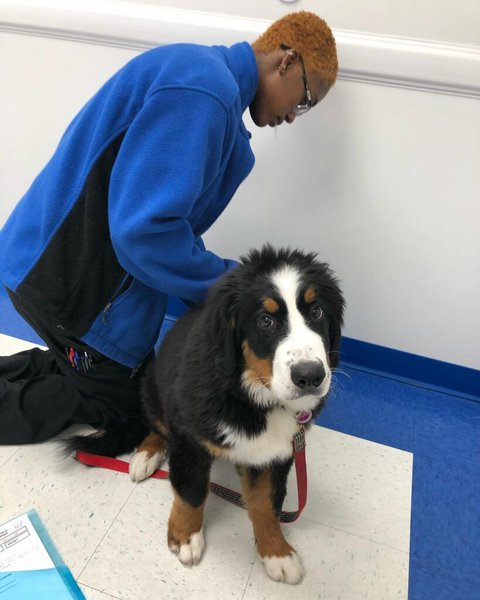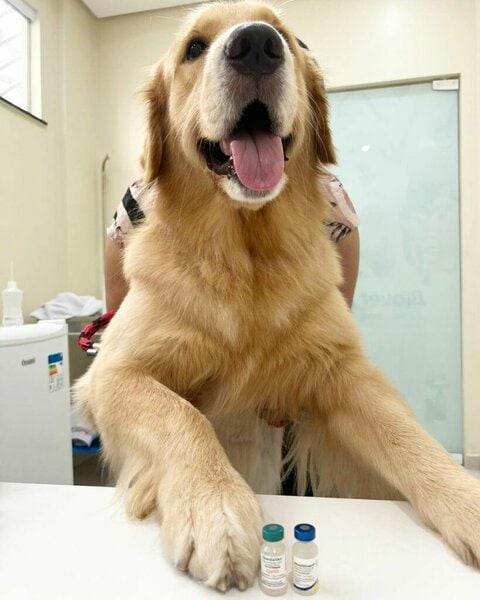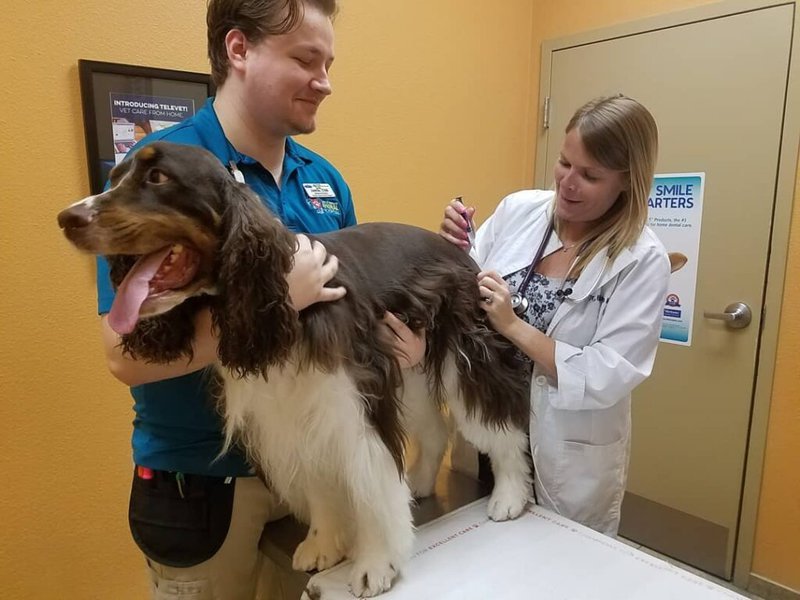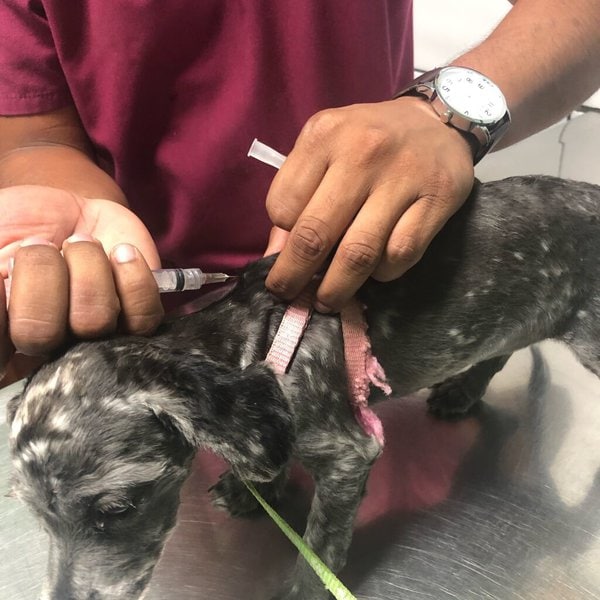Dog vaccinations are critical parts of pet care. These vaccines protect your dog from transmittable diseases, which can potentially shorten its lifespan. Having your dog vaccinated is part of responsible pet ownership, plus the fact that some animal diseases are zoonotic, meaning that they can be transmitted to humans.
Owners like you should constantly update your dog’s vaccination, regardless of whether your dog stays all the time indoors. Depending on where you live, some states in the United States, like Texas, require dog owners to have their dogs vaccinated against rabies; failure to do so is considered a criminal offense.
Here are the different kinds of vaccines that you can avail of for your dog. Some of these are core vaccines, which are recommended to all dogs, while non-core vaccines are only recommended based on a dog’s lifestyle and medical history.
Non-Core Vaccines:
- Leptospirosis
- Bordetella
- Coronavirus
- Lyme Disease
- Giardia
- Rattlesnake Vaccine
- Canine Influenza H3N8
- Parainfluenza
Core Vaccines:
- Hepatitis/Adenovirus
- Parvovirus
- Distemper
- Rabies
12. Leptospirosis (Non-Core)

States requiring this vaccination by law: Florida
Cost: $20 to $30
Leptospirosis is an infection caused by a bacteria called Leptospira. It has severe consequences for both the dog and its owner. Dogs get leptospirosis from contaminated bodies of water, soil, or urine. Dogs that are at risk are those living near wooded areas, and farms, and who spend a long time in dog kennels. Plus, those who join outdoor sports competitions are also at risk for leptospirosis.
The signs of leptospirosis in dogs are chills, fever, diarrhea, and vomiting. If left untreated, the condition worsens, leading to liver and kidney failures.
Only dogs that are at risk need the leptospirosis vaccine. This vaccine contains a weakened type of bacteria that the dog’s immune system fights off. The vaccination schedule for leptospirosis is given at 9 to 12 weeks of age, with a second shot to be administered after 2 to 4 weeks and then a booster shot once a year.
11. Bordetella (Non-Core)

States requiring this vaccination by law: State of New York, Florida
Cost: $40
The Bordetella vaccine is given to vulnerable dogs to prevent getting infected with kennel cough. Bordetella bronchiseptica is a highly contagious bacterial infection that can cause a honking or hacking cough. Bordetella is not a life-threatening illness unless a dog or a puppy has an underlying medical problem.
Not all dogs need this type of vaccine. Only those that are regularly boarded, groomed, and attending dog shows and other social activities need to be vaccinated against bordetella.
The Bordetella vaccine works by introducing small doses of nonpathogenic Bordetella bacteria and a modified live parainfluenza virus to the dog’s system. This is done so the dog’s immune system can recognize these pathogens in the future and fight them off. The vaccine can be administered either through an intranasal spray or injection and is administered once a year.
10. Coronavirus (Non-Core)

States requiring this vaccination by law: None
Cost: $40
There are two kinds of canine coronavirus. The first is the Respiratory Canine Coronavirus or CRCoV can be likened to the common cold among humans and has no available vaccine yet.
The second is the Enteric Canine Coronavirus which is referred to as CCoV and is commonly seen among puppies and those living in shelters. A vaccine is available for this second kind of canine coronavirus.
Enteric Canine Coronavirus is transmitted through direct contact with infected feces. Though the mortality rate is low, it causes gastrointestinal distress, which includes bloody diarrhea, vomiting, and loss of appetite.
The Coronavirus vaccine is only recommended for dogs that live in communal spaces with other pets. It is typically given once or every two years.
9. Lyme Disease (Non-Core)

States requiring this vaccination by law: None
Cost: $39
Lyme disease is caused by a black-legged tick bite that transmits the bacteria Borrelia burgdorferi to dogs. Once infected, the dog will develop symptoms that include fever, joint swelling & lameness, and loss of appetite. If left untreated, it will affect the kidneys and the heart. Dogs with Lyme disease do not infect humans.
Dogs that are more susceptible to getting infected are those living in the Northeastern United States, mid-Atlantic states, and upper Midwest. Plus, those dogs are always out on a trail in wooded areas.
Does your dog need to be vaccinated against Lyme disease? Veterinarians recommend dogs that have been infected with Lyme disease get one that is administered annually. Lifestyle is another factor to consider if the dog is a good candidate for Lyme vaccination.
8. Giardia (Non-Core)

States requiring this vaccination by law: None
Cost: No information available
Giardia is a parasite that lives in a dog’s intestines. Puppies are the ones commonly infected but adult dogs are not immune from it. They get infected if they swallow food or water contaminated by Giardia.
The common signs are diarrhea and vomiting. If left untreated for a long time, it may result in weight loss and death. Dogs infected with Giardia cannot pass on the disease to humans.
To prevent Giardia and the symptoms associated with it, a Giardia vaccine can be administered to puppies and adult dogs once a year.
7. Rattlesnake Vaccine (Non-Core)

States requiring this vaccination by law: None
Cost: $30 to $40
Over 100,000 estimated dogs in the United States are bitten by rattlesnakes, with 40% resulting in severe conditions, while about 5% are reported to have caused fatal reactions.
The venom of rattlesnakes causes severe swelling and bleeding, a drop in the dog’s blood pressure, neurological & liver problems as well as breathing paralysis. With these alarming effects of venom, dog owners should also consider rattlesnake vaccines for their dogs.
The rattlesnake vaccine is highly recommended to those living in areas where rattlesnakes are prevalent. Plus, dog owners take their dogs with them on mountain hiking and camping. The vaccine is designed to produce milder symptoms and hasten recovery and prevent death from a rattlesnake bite. The vaccine can be administered at 16 weeks of age and followed up by a booster once a year.
6. Canine Influenza H3N8 (Non-Core)

States requiring this vaccination by law: None
Cost: $55 to $120
Also referred to as dog flu, canine influenza H3N8 causes respiratory problems in dogs, and in rare cases, may even lead to death. Canine influenza H3N8 is very contagious, more so in places where dogs are in close proximity, such as boarding facilities and grooming centers.
The common signs are coughing, sneezing, runny nose, lethargy, and disinterest in food. Most dogs will recover in two weeks, but puppies, older dogs, and those with compromised immune systems take a longer time to recover and may even lead to pneumonia.
A canine influenza H3N8 vaccine works by reducing the replication of the virus, as well as shortening the duration of the disease. Thus, vaccinated dogs recuperate faster and show less severe symptoms than the unvaccinated. It is administered at eight weeks of age and then a booster shot after 2 to 4 weeks. Revaccination is recommended annually.
5. Parainfluenza (Non-Core)

States requiring this vaccination by law: Florida
Cost: $45 to $65
Canine Parainfluenza virus, or CPIV, is a highly communicable respiratory virus. It is transmitted through airborne particles, and it is more common in dogs that are kept together, such as in boarding facilities and even in veterinary hospitals.
Dogs that are infected with parainfluenza manifest signs that include dry cough, fever, lethargy, and loss of appetite. Parainfluenza also causes dogs to suffer from kennel cough. The best way to prevent the spread of canine parainfluenza is through an effective vaccination program.
The aim of the parainfluenza vaccine is to achieve herd immunity which helps protect other susceptible dogs from contracting the disease. Also, the aim of the parainfluenza vaccine is to decrease the severity of the illness. The vaccine is available in intranasal and injectables which can be given to puppies as young as four weeks of age.
4. Hepatitis/Adenovirus (Core)

States requiring this vaccination by law: Florida
Cost: $32
Canine adenovirus type 1 is a virus that causes canine hepatitis. The virus is transmitted through contaminated water, urine, saliva, and feces. Young dogs are more susceptible to getting infected with signs ranging from mild fever, depression, and decreased appetite. In severe cases, the symptoms are abdominal pain, edema, and jaundice.
The canine adenovirus vaccine falls under the core vaccine classification for dogs because it is effective in preventing canine hepatitis. Adenovirus 1 disease can be prevented through vaccination.
The adenovirus 1 vaccine is usually incorporated in a 5-way vaccine known as DHLPP. It is an injectable vaccine given at 6 weeks of age and then every 2 weeks until the puppy reaches 16 weeks of age. A booster shot is administered annually or every 3 years, depending on the recommendation of the veterinarian.
3. Parvovirus (Core)

States requiring this vaccination by law: Florida
Cost: $30
Parvovirus, or CPV, is a highly contagious viral infection that is transferred via infected feces. The virus causes gastrointestinal diseases because it attacks the lining of the small intestines. It is mostly seen among young dogs, but adults can be infected, too.
The common signs of parvovirus are depression, high fever, bloody diarrhea, and vomiting. Though the survival rate for parvovirus is high, still, it is recommended to have your dog vaccinated against it.
The parvovirus vaccine is oftentimes included in the 5-in-1 vaccine or DHLPP. The vaccine is administered to puppies at 6 weeks of age and every 2 weeks thereafter until the puppy reaches 16 weeks of age. A booster is recommended once or every 3 years, depending on the lifestyle of the dogs.
2. Distemper (Core)

States requiring this vaccination by law: Florida
Cost: $30
Canine distemper is a fatal viral infection that can be easily transmitted through sneezing and coughing. The canine distemper virus or CDV targets not just the respiratory system but gastrointestinal and the central nervous system as well.
The manifestations of distemper are coughing, discharge from the eyes & nose, seizures, and paralysis. The dogs at risk are puppies and unvaccinated dogs.
The best way to prevent your dog from getting infected is through vaccination. The distemper vaccine is one of the core vaccines administered to dogs as young as 6 weeks, and it is part of the DHLPP series. After one year, a booster shot is given to provide protection for up to 3 years.
1. Rabies (Core)

States requiring this vaccination by law: Alabama, Alaska, Arizona, Arkansas, California, Colorado, Connecticut, Delaware, District of Columbia, Florida, Colorado, Connecticut, Delaware, Florida, Georgia, Hawaii, Idaho, Illinois, Indiana, Iowa, Kansas, Kentucky, Louisiana, Maine, Maryland, Massachusetts, Michigan, Minnesota, Mississippi, Missouri, Montana, Nebraska, Nevada, New Hampshire, New Jersey, New Mexico, New York, North Carolina, North Dakota, Ohio, Oklahoma, Oregon, Pennsylvania, Rhode Island, South Carolina, South Dakota, Tennessee, Texas, Utah, Vermont, Virginia, Washington, West Virginia, Wisconsin, Wyoming
Cost: $15 to $28
Rabies is a viral disease that is fatal to both dogs and humans. The rabies virus targets the central nervous system, so the infected dog suffers from paralysis and death.
The rabies virus is transmitted via a bite from an animal that is infected with rabies. Another way of transmission is through the saliva of an infected dog into an open wound of a non-infected animal. Dogs can transmit the rabies virus through a bite. Based on research conducted by the WHO, dogs are the main source of rabies transmission to humans.
Rabies death can be prevented through annual anti-rabies vaccination. The vaccine is administered at 4 months of age and then once a year thereafter. In the United States, some states allow a specific interval. There is a corresponding penalty if the owner fails to vaccinate his dog against rabies; either a fine or the dog can be taken away from its owner.
Related Questions
What Happens If You Don’t Vaccinate Your Dog?
If your dog is not vaccinated, it is vulnerable to various diseases, more so in the case of puppies. Some of these diseases can only result in mild symptoms, but some can be fatal. Thus, there is a strong possibility for unvaccinated dogs to have a shorter lifespan compared with dogs that are up-to-date with their vaccines.
Do You Have To Keep Vaccinating Your Dog?
Anti-rabies is one of the vaccines that need to be administered to dogs yearly. Some states in the United States only recommend but do not require dogs to be vaccinated against diseases such as parvovirus and distemper once every 1 to 3 years. Still, it’s a good practice to keep on vaccinating your dog to avoid getting infected with preventable diseases.
How Long Can My Dog Go Without Vaccine?
Unless your dog is exposed to communicable diseases like adenovirus, your dog will not die if it is not vaccinated. Except for the anti-rabies vaccine, having your dog inoculated is a personal choice. If you decide not to avail of vaccinations for your dog, there is always that chance that it can pick up a disease that can otherwise be prevented through vaccination.





